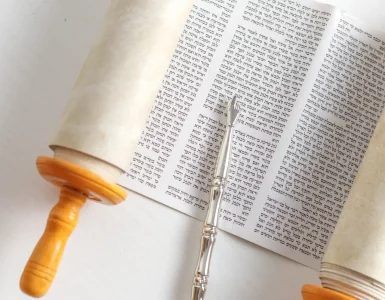Charity Begins at Home
“You shall certainly give to him and have no regrets when you give to him, for in return Hashem your God will bless you in all your efforts and in all your undertakings.” (Devarim 15:10)
Tzedaka and Gemilas Chasadim have always been a distinct characteristic of the Jewish people. The kinship that Jews feel for one another distinguishes them among the nations, and this also extends to the arena of medical treatment. Dozens of Chesed organizations provide assistance, medical advice, and comprehensive support to patients and their families. This essay will discuss the proper balance between offering medical assistance to the wider community and to family members.
There are many degrees of precedence (Kedima) in Hilchos Tzedaka). HaGaon Rav Asher Weiss Shlit”a outlined four forms of Kedima:
- Kedima with regard to the purpose of the Tzedaka, such as choosing between matters of Pikuach Nefesh, Talmud Torah, or donations to the poor.
- Kedima with regard to the need, such as between food or clothing, etc.
- Kedima with regard to the manner in which the aid is offered, as delineated by the Shulchan Aruch (Y.D. 249).
- Kedima with regard to the recipients of the Tzedaka, as discussed in this essay.
The Shulchan Aruch rules (Y.D. 251):
One who provides for his adult sons and daughters – whom he is not liable to support – in order to teach the sons Torah and to guide the daughters on the correct path, and similarly one who gives gifts to his father – if they are in need of the support, this is included in the Mitzva of Tzedaka. Not only that, but he should give them precedence over others. Even if [the recipient of the Tzedaka] is not his son or father, but another relative, he should give him precedence over anyone else. His paternal brother takes precedence over his maternal brother. The poor of his household take precedence over the poor of his city. The poor of his city take precedence over the poor of another city (as evident from the Semag, Semak, and Tur).
The Rema adds:
A person’s own livelihood takes precedence over any other person’s. He is not obligated to give Tzedaka until he has income for himself. Then he should give precedence to the livelihood of his father and mother – if they are poor – they take precedence over the support of his children. After that [in order of precedence] are his children – they take precedence over his brothers – and they [his brothers] take precedence over his other relatives. His relatives take precedence over his neighbors, his neighbors over the people of his city, and the people of his city over those of another city. The same applies if they are captives and he needs to redeem them (Tur).
The obligation to give precedence to one’s family members also applies in other areas of Halacha. For example, the Gemara (Yevamos 62b-63a) states: “Regarding somebody who draws his relatives close, or marries his sister’s daughter… the Posuk says ‘Then you will call and Hashem will respond; you will cry out and He will say, ‘Here I am!” (Yeshaya 58:9). The reference to marrying one’s sister’s daughter can be found two Pesukim previously, where the Navi urges the people “and do not hide yourself from your kin”;in other words, choose to marry your relative, rather than a woman to whom you are unrelated.[1]
The basic premise of “drawing one’s relatives close” is that one should give them precedence over others, as stated by the Rambam (Moreh Nevuchim 3:42):
The Chachamim greatly praised the practice of a person who draws his relatives close and marries his sister’s daughter. The Torah already strongly emphasized this principle, namely, that a person should favor his relatives and draw close anybody to whom he is related, even if he has wronged him or stolen from him. Even if that relative is greatly corrupt, he has no choice but to show favor to him.
As we have seen, with regard to the Mitzva of Tzedaka this is, in fact, the Halacha – a person must give Kedima to his relatives. The reason for this is that it is natural for a person to be concerned for his own welfare, and for that of his relatives and close friends. If a person does not show concern for his relatives there will be nobody else who will do so to the same degree.
Does the principle of Kedima for relatives also apply to medical treatment and assistance?
The Ya’avetz (Migdal Oz, Even Bochan 89 and onwards) discusses the Halachos of Kedima in Hatzalas Nefashos at length. He contends that Kedima of family members is applicable and follows the Halachic order of inheritance (for example, a person should save his son’s life before his brother’s). However, if there are other reasons to give precedence to an individual (such as his Rebbi), the Kedima of relatives is overridden. The protocol is the same as that of Tzedaka or redemption of captives.
We should point out that, in cases of Hatzalas Nefashos, most of the Halachos of Kedima are almost never applicable. This is mainly because one must always give precedence to the person who most needs assistance or for whom the assistance will be most likely to help in saving his life. This consideration overrides all others. We will, therefore, focus on Kedima in medical assistance when no lives are at risk.
We should also point out that one may not give Kedima to a relative over a person with an earlier appointment.[2] However, if there are no pre-arranged appointments, a person should treat his relative first, as medical treatment is included in the Mitzva of Tzedaka.
An important caveat is based on the ruling of the Chacham Tzvi (Siman 70) that the laws of Kedima only apply to an individual deciding how to allocate his Tzedaka between different beneficiaries. However, a Gizbar (trustee) of a Tzedaka fund, may certainly not give precedence to members of his family. He may only employ the other conditions of Kedima, such as giving precedence to a Talmid Chacham over an Am haAretz, etc.
Some contend that the same would apply to medical assistance. For example, a physician who works in public healthcare and uses publicly funded medical equipment, may not give precedence to his relatives, as his time and equipment are equivalent to a Tzedaka fund and he is equivalent to a Gizbar.
This is particularly relevant with regard to physicians who can use their connections to procure appointments with specialists, treatments, surgery, or diagnostic testing for relatives more speedily. They may not do so in the public healthcare system which, as stated, is equivalent to a Tzedaka fund. If two individuals simultaneously request his assistance, he may not give precedence to his relative at the expense of the other patient, and if the general rules of Kedima dictate that the non-relative comes first, he must be given precedence. He may only give Kedima to the relative (on the basis of his familial connection) if the two are otherwise equal.
Rav Yitzchak Zilberstein Shlit”a (Nes l’Hisnoses 67) discusses the question of Kedima in cases of Hatzalas Nefashos. One case he discusses is where a person sees two people drowning in a river, one of whom is a relative. He cites the Poskim who contend that the principle of “Ein Ma’avirin Al haMitzvos” applies, and one should not pass over the person who is closest to him to rescue the one who is further away. However, he adds:
I heard from my father-in-law, Rav Elyashiv zt”l, that if the person further away is his son, he is permitted to rescue him first. For just as the life of the potential rescuer takes precedence [over the life of those who he seeks to rescue], so does the life of his son take precedence over others – for the son is the extension of the father (“Bra Kara d’Avuha”]. Likewise, with regard to Hashavas Aveida, it is likely that if he sees a lost article belonging to somebody else and also a lost article belonging to his son (who is dependent upon him) a distance away, he may pass by the [nearby] lost article and retrieve the lost article of his son, for it is considered like his own lost article. We have also learned in the Sefer Ahavas Chesed (Laws of Halva’ah 6:11) that if a person knows that a relative will soon come to borrow money from him, he may refrain from lending the money to another poor person who is unrelated to him. This is because he has a greater obligation to perform Chesed with his relatives. It is likely that a relative also takes precedence with regard to lifesaving.
This is a fascinating ruling. According to Rav Elyashiv zt”l a person may always give precedence to his son over others.
In an as-yet unpublished essay, HaGaon Rav Asher Weiss Shlit”a gives two important caveats with regard to Kedima in the Mitzva of Tzedaka:
Though the Poskim have outlined laws of Kedima regarding Tzedaka, one should consider the situation, time, and place. It is clear, to my mind, that although Chazal dictated that the poor of one’s own city take precedence, that was only during their time when it was the people of the city who would concern themselves over the poor in their city, and there was nobody else who would do so. But today, in the era of public transportation and mass communication, if a poor person travels the world to collect donations, or if the Va’adim [established by] Rabbanim and Tzedaka organizations make a public campaign to raise money for him that crosses boundaries and covers great distances, he can no longer be considered “the poor of your city”.
However, it would appear
that this argument only applies to the law of “the poor of your city” – where
we can argue that the law is less applicable today. But with regard to family
members, it is certainly still the case that each person takes care of himself,
his family, his relatives, and close friends. This is something that hasn’t
changed, even in places with an effective public health system, and generally,
with regard to Tzedaka it is clear that the majority of Tzedaka and Gemilas
Chasadim is based on assistance offered by relatives and close friends.
Therefore, the principle of Kedima of relatives is certainly still applicable
to medical assistance and Tzedaka.
Rav Asher also wrote:
I am also in doubt as to whether the parameters of Kedima in Tzedaka are an obligation, like the Halachos of Kedima in Brachos or those of Hatzalas Nefashos detailed at the end of Maseches Horayos, or whether they are merely an ideal and the best way to perform the Mitzva. It would seem reasonable that a person is permitted to give his money to any Tzedaka of his choosing and that there is no absolute obligation in the order of Kedima, which is just an ideal and Midas Chasidus. Since there is no absolute obligation and, moreover, there are numerous questions regarding the Halachos of Kedima, it would seem to be appropriate to take the “middle path” and set aside some of one’s money for Talmud Torah, some for the poor, needy, and other matters of Tzedaka and Chesed.
This ruling is also relevant to the matter of Kedima of family members. Just as a person should not abandon all
other forms of Tzedaka that benefit the wider public and focus only on his
family, he should also not ignore the plight of others who need medical
assistance while giving precedence to his family. For example, a person
offering medical advice should also set aside some of his time for members of
the public and not just his relatives. He should only observe the directive “and
do not hide yourself from your kin” as a general principle [when allocating
his resources, but not in an absolute manner to the exclusion of others].
[1] In our essay on Parshas Matos (5779), we discussed whether a person should be concerned about genetic diseases which can result from marrying relatives. We dealt with this citation from Yevamos at length.
[2] See Tzitz Eliezer 18:69:3, Nishmas Avraham 4, Y.D. 251:1 citing Rav Yehoshua Neuwirth zt”l, and 252 in footnote citing Rav Shlomo Zalman Auerbach zt”l.












